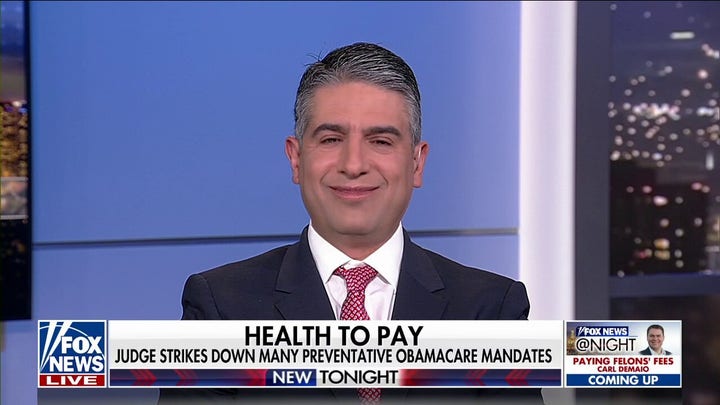
After previous elections highlighted the fight to repeal and replace Obamacare. Republicans are eager to move on from healthcare to more favorable political terrain like fiscal management and national security.
Obamacare has grown more popular and Republican voters are less excited about repealing the law. Donald Trump’s renewed commitment to repeal Obamacare worries Republicans eager to make the 2024 election a referendum on President Joe Biden’s handling of inflation, border security and international conflicts.
However, former president Barack Obama’s strategy of transferring healthcare costs from patients to taxpayers provides conservatives an opportunity to focus on increasing affordability by actually reducing costs. Democratic healthcare policies have left millions at risk of losing their coverage, and even Massachusetts Democrat Sen. Elizabeth Warren noting the industry consolidation and rising costs that resulted from Obama’s signature law.
Democrats have increased government involvement in healthcare by taking incremental steps, like creating the Children’s Health Insurance Program and expanding Medicaid to cover beneficiaries who earned too much to meet eligibility requirements and proposing to lower the Medicare eligibility age rather than enacting Vermont Independent Sen. Bernie Sanders’ comprehensive single-payer Medicare-for-All plan.
Republicans should similarly pursue a radical incrementalism strategy to empower patients and their providers rather than government bureaucrats. They should enact popular policies that repeal important portions of Obamacare, while also enacting conservative reforms that make additional reforms more likely. Republicans have already repealed the individual mandate penalty and taxes on health plans and medical devices and should now pursue four additional incremental policies.
1. Republicans should pass legislation allowing individuals to purchase any health coverage product approved by their state insurance commissioners. Obamacare centralized insurance regulatory responsibilities previously performed at the state level, and adopted a one-size-fits-all approach that transformed individual health insurance products into regulated utilities with limited choice and flexibility, less innovation and higher costs.
The Trump administration attempted to expand consumer access to cheaper and more flexible alternatives to Obamacare’s exchanges through association health plans, limited duration plans and consumer directed accounts; some of these efforts were frustrated by the courts and the Biden administration.
States have also passed laws allowing Farm Bureau Health Plans to operate outside the exchange mandates. Empowering state insurance commissioners to end the monopoly enjoyed by exchange plans would create more competition and lower premiums and mark an important return to federalism principles, trusting state regulators to protect their constituents.

The smaller exchanges could focus on serving individuals with costlier preexisting conditions, the political rationale for their creation, and resemble the high-risk pools Republicans have long advocated as an Obamacare alternative.
2. Republicans should give states more flexibility to manage their Medicaid programs to focus on improving health outcomes rather than the current emphasis on coverage and complicated federal process rules.
Medicaid expansion covers more than 20 million beneficiaries and accounts for over half of Obamacare’s enrollment gains. However, governors from both parties complain about the program’s bureaucracy and lack of flexibility.
An emphasis on coverage and regulations has resulted in dramatically higher federal and state spending without proportionally better outcomes; many beneficiaries counted as covered lack access to specialists or sit on lengthy waiting lists.
This flexibility for local officials to design programs that meet their population’s unique needs can be done via existing federal waiver authority or more permanent legislation.
3. Republicans should end Obamacare’s discrimination against Medicaid recipients with disabilities, pregnant women and young children. Obamacare increased the federal share to at least 90% of every dollar spent on expanding Medicaid coverage to able-bodied adults and others who earned too much to qualify as a bribe to encourage states to participate.
The result is states spend more for every dollar spent on individuals with disabilities, pregnant women, low-income elderly and young children who were the original intended Medicaid beneficiaries.
Ending this discrimination would allow state policymakers to decide on a fairer basis whether to invest their incremental general revenues on addressing waiting lists and expanding community-based services to individuals with disabilities and providing continuous enrollment for mothers or on expanding coverage for able-bodied adults.
Republicans should similarly pursue a radical incrementalism strategy to empower patients and their providers rather than government bureaucrats. They should enact popular policies that repeal important portions of Obamacare, while also enacting conservative reforms that make additional reforms more likely. Republicans have already repealed the individual mandate penalty and taxes on health plans and medical devices and should now pursue four additional incremental policies.
4. Republicans should make the exchange subsidies portable so that individuals can choose the coverage that is best for them. Nearly 80% of exchange enrollees receive federal subsidies, including ‘temporary’ subsidies extended by Biden’s Inflation Reduction Act, as Democrats have been more successful at hiding than reducing the cost of healthcare.
Many individuals are trapped in exchange plans with high deductibles or narrow networks, denying them meaningful access to high-quality care. Individuals should be able to use the subsidies to help purchase more affordable or tailored alternatives, including Health Savings Accounts, while the exchanges serve as targeted safety nets.
Conservatives can pursue these incremental reforms, rather than forcing through a thousand-page bill, and build momentum for their larger projects to reform the tax code’s unfair treatment of healthcare spending, reduce government spending and involvement in healthcare, and give control over critical healthcare decisions to patients working with their doctors.
Republicans should simultaneously pursue bipartisan policies to actually bend the cost curve down, like ending dishonest billing, enacting site-neutral payments, encouraging more prescription drug competition and enforcing antitrust prohibitions on consolidation in the healthcare marketplace.
Democrats have mistakenly equated coverage with high quality healthcare and government spending with compassion. Republicans can win the healthcare debate, not by talking about taking away things or foolishly trying to outspend the Democrats.
Rather, conservatives should offer radical incremental alternatives that address patients’ concerns about rising costs and lack of access to high quality healthcare that meets their unique needs. Republicans must win the healthcare debate by offering a better alternative, not being defined simply by what they oppose. Republicans can still repeal and replace Obamacare, as long as they do it one step at a time.






























